Come join us now, and enjoy playing your beloved music and browse through great scores of every level and styles!
Can’t find the songbook you’re looking for? Please, email us at: sheetmusiclibrarypdf@gmail.com We’d like to help you!
Table of Contents
What is a Jazz Standard?
A jazz standard is a musical theme that has acquired a certain notoriety in the jazz genre, which is known by many musicians and which has been the subject of numerous versions, interpretations and improvisations, and which is frequently used in jam sessions and performances.
There are standards from all eras of jazz, such as ‘When the Saints Go Marching In’, ‘I Got Rhythm’ or ‘How High the Moon’, ‘Take the ‘A’ Train’ to cite examples of the hot, swing and bop.
Many of the best-known standards were composed for films, or come from the so-called Great American Songbook, and have been incorporated into the genre, such as, for example, ‘Summertime’, by George Gershwin, while, for example, ”Round Midnight’, by Thelonious Monk, has been covered by, among others, Cootie Williams, Dizzy Gillespie, Art Pepper, and Miles Davis.
Best Sheet Music download from our Library.
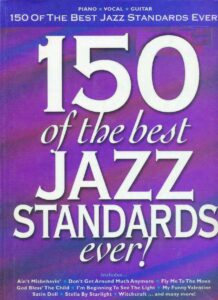
The most recorded standard composed by a jazz musician, and one of the most covered songs of all time, is Duke Ellington’s and Juan Tizol’s “Caravan” with over 500 uses.
Originally, the most recorded jazz standard was W. C. Handy’s “St. Louis Blues” for over 20 years from the 1930s onward, after which Hoagy Carmichael’s “Stardust” replaced it. Following this, the place was held by “Body and Soul” by Johnny Green.
Please, subscribe to our Library.
If you are already a subscriber, please, check our NEW SCORES’ page every month for new sheet music. THANK YOU!
Before 1920
At the beginning of the 20th century, jazz was still considered dance music. The first Dixieland groups remained influenced by this image: King Oliver and his Creole Jazz Band, the New Orleans Rhythm Kings and many other groups included Tin Pan Alley in their repertoires, and record companies sometimes dictated the list of titles that must be recorded by their artists.
Certain imposed songs have thus become standards, such as Darktown Strutters’ Ball or (Back Home Again in) Indiana, recorded by the Original Dixieland Jass Band at Columbia Records in 1917.
Also, among the standards of this era are the songs After You’ve Gone (Turner Layton and Henry Creamer, 1918) and Some of These Days (Sophie Tucker, 1910).
The 1920s
The Jazz Age began in the United States in the 1920s. Jazz became popular there, even though the older generation considered this music immoral and endangering their cultural values.
The first artist who allowed himself to freely choose his titles was Louis Armstrong, who popularized many standards during the years 1920 to 19301. The popular tunes of the 1920s were songs like Sweet Georgia Brown, Dinah or Bye Bye Blackbird.
Some compositions from this era written by jazz musicians have become standards such as Honeysuckle Rose (1928) and Ain’t Misbehavin’ (1929) by Fats Waller. The song Stardust by Hoagy Carmichael and Mitchell Parish is the most recorded jazz standard of the 1920s. Others are written by Broadway composers such as The Man I Love by George and Ira Gershwin (1924), Blue Skies by Irving Berlin (1927), or What Is This Thing Called Love? by Cole Porter (1927).
However, it was not until the 1930s that jazz musicians became comfortable with the complex melodies and sophisticated harmonic grids of Broadway tunes, and used them regularly in their repertoires.
The 1930s
Broadway contributed some of the most popular standards of the 1930s, including the famous Summertime from the comedy Porgy and Bess by George and Ira Gershwin (1935), My Funny Valentine by Richard Rodgers and Lorenz Hart (1937), All the Things You Are by Jerome Kern and Oscar Hammerstein II (1939), and Body and Soul by Johnny Green (1930). These standards are among the most recorded.
The 1930s saw swing establish itself in American music. Duke Ellington and his musicians composed many themes which would become jazz standards: It Don’t Mean a Thing (If It Ain’t Got That Swing) (1932), Sophisticated Lady (1933), Caravan (1936) among the most famous.

The swing era (1935–1946) is that of the greatest big bands, such as those of Benny Goodman and Count Basie, who also participated in the repertoire of jazz standards.
The 1940s
New themes became popular, such as Cotton Tail by Duke Ellington (1940) or Take the ‘A’ Train by Billy Strayhorn (1941). The Second World War was a difficult time for big bands, and small groups developed.
The arrival of bebop brought out a new audience sensitive to sophisticated harmonies, fast tempos, and the virtuosity of the musicians. Their repertoires largely use the standards of the 1930s, but their compositions will also enter the list of standards: Salt Peanuts (1941) and A Night in Tunisia (1942) by Dizzy Gillespie, Anthropology (1946), Yardbird Suite (en) ( 1946), Scrapple from the Apple (1947) by Charlie Parker, or ‘Round Midnight (1944) by Thelonious Monk.
The 1950s and beyond
Some modal jazz recordings became popular in the late 1950s, such as the albums Kind of Blue by Miles Davis in 1959 with the compositions All Blues and So What, Impressions (en) by John Coltrane in 1963, or Maiden Voyage by Herbie Hancock in 1965.
In the mid-1960s, Miles Davis’ second major quintet with Wayne Shorter and Herbie Hancock recorded a series of albums which contained standards such as Footprints (Wayne Shorter, 1966) and Freedom Jazz Dance (Eddie Harris, 1966).
At the end of the 1950s, bossa nova appeared in Brazil, a mixture of samba and jazz, made popular by João Gilberto, Antônio Carlos Jobim and Luiz Bonfá. Gilberto and Stan Getz launched this trend in the United States in 1964 with the famous Getz/Gilberto album. Among the standards of the genre are compositions by Bonfá (Manhã de Carnaval, 1959), Marcos Valle (Summer Samba, 1966), and numerous songs by Jobim such as Desafinado (1959), The Girl from Ipanema (1962), Corcovado (1962).
In the mid-1970s, jazz fusion appeared, which was a mixture of jazz, funk and rock. Joe Zawinul with Weather Report, Chick Corea with Return to Forever, Herbie Hancock with The Headhunters, or John McLaughlin’s Mahavishnu Orchestra considerably broaden the jazz audience, and some of their successes have become standards: Spain (en) by Chick Corea (1971), Chameleon by Hancock (1973), and Birdland by Joe Zawinul (1977).

Jazz standards
Musical compositions that have become jazz standards.
Irving Berlin – Alexander’s Ragtime Band [1911]
“Alexander’s Ragtime Band” is a Tin Pan Alley song by American composer Irving Berlin released in 1911 and is often inaccurately cited as his first global hit. Although not a traditional ragtime song, Berlin’s jaunty melody nonetheless “sold a million copies of sheet music in 1911, then another million in 1912, and continued to sell for years afterward.
It was the number one song from October 1911 through January 1912.” The song might be regarded as a narrative sequel to “Alexander and His Clarinet”, which Berlin wrote with Ted Snyder in 1910. The earlier song is mostly concerned with a reconciliation between an African-American musician named Alexander Adams and his flame Eliza Johnson, but also highlights Alexander’s innovative musical style.
Berlin’s “Alexander’s Ragtime Band” was introduced to the American public by vaudeville comedienne Emma Carus, “one of the great stars of the period.” A popular singer in the 1907 Ziegfeld Follies and Broadway features, Carus was a famous contralto of the vaudeville era, renowned for her “low bass notes and high lung power.”
Carus’ brassy performance of the song at the American Music Hall in Chicago on April 18, 1911, proved to be well-received, and she toured other metropolises such as Detroit and New York City with acclaimed performances that featured the catchy song. The song as comically recorded by American singing duo Arthur Collins and Byron G. Harlan became the number one hit of 1911.
Nearly two decades later, jazz singer Bessie Smith recorded a 1927 cover, which became one of the hit songs of that year. The song’s popularity re-surged in the 1930s with the release of a 1934 close harmony cover by the Boswell Sisters, and a 1938 musical film of the same name starring Tyrone Power and Alice Faye. The song was covered by a variety of artists such as Al Jolson, Billy Murray, Louis Armstrong, Bing Crosby, and others. Within fifty years of its release, the song had at least a dozen hit covers.
Etta James – Stormy Weather
From the album is At Last.
Search in our Library by author, or song name.
| Artist or Composer / Score name | Cover | List of Contents |
|---|---|---|
| Alan Silvestri Main Theme Night At The Museum Piano Solo | Alan Silvestri Main Theme Night At The Museum Piano Solo | |
| Alan Silvestri The Avengers |
 | Alan Silvestri The Avengers |
| Alan Walker – Faded |
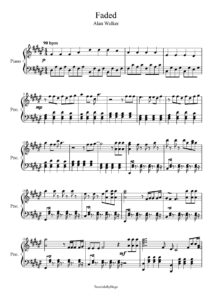 | |
| Alan Walker Faded (Piano) |
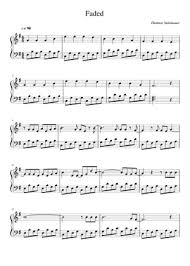 | |
| Alan-Menken – Enchanted (Disney) |
 | Enchanted Piano Vocal Guitar |
| Alanis Morisette – Hand In My Pocket | ||
| Alanis Morisette – Hands Clean | ||
| Alanis Morisette – Ironic | ||
| Alanis Morisette – Thank You | ||
| Alanis Morisette – That I Would Be Good | ||
| Alanis Morisette – Uninvited | ||
| Alanis Morisette – You Oughta Know | ||
| Alanis Morrissete You Oughta Know Sheet Music |
 | |
| Alban Berg – Schliesse Mir Die Augen Beide (Musescore File).mscz | ||
| Alban Berg – Schliesse mir die Augen beide (Piano and voice Noten) |
 | |
| Albeniz Isaac – Tango In D – Para Piano | Albeniz-Isaac-Tango-In-D-Para-Piano | |
| Albeniz For Acoustic Guitar with Audio MP3 by Laurindo Almeida |
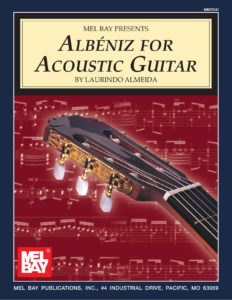 | Albeniz for acoustic guitar with audio MP3 |
| Albeniz Suite Española V (Musescore File).mscz | ||
| Albéniz, Isaac – Capricho Catalán (Op. 165 no. 5) (Guitarra – Guitar) |
 | |
| Albéniz, Isaac – Capricho Catalán (Op. 165 no. 5) (Piano) |
 | |
| Albert Ammons 5 Boogie Woogie Piano Solos Sheet Music |
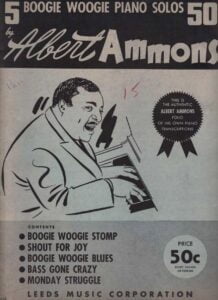 | Albert Ammons 5 Boogie Woogie Piano Solos Sheet Music |
| Albert Ammons – Boogie Woogie Stomp |
 | |
| Albert Ammons – Monday Struggle | Albert Ammons – Monday Struggle | |
| Albert Ammons – Shout For Joy | Albert Ammons – Shout For Joy | |
| Albert Ammons – Swanee River Boogie Woogie |
 | |
| Albert Harris Sonatina Guitar Solo |
 | |
| Albert Harris Variations And Fugue On A Theme Of Haendel (Guitar) |
 | |
| Albert King The Very Best Of Albert King (Guitar TABs) |
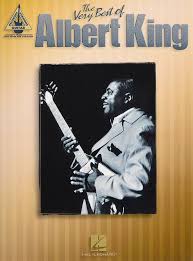 | Albert King The Very Best Of Albert King |
| Albert King With Stevie Ray Vaughan In Session Guitar Tablature |
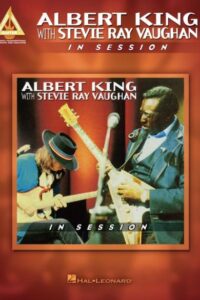 | Albert King With Stevie Ray Vaughan In Session Guitar Tablature |
| Albert Lee – The Best Of Albert Lee Guitar Tabs |
 | Albert Lee – The Best Of Albert Lee Guitar Tabs |
| Albinoni – Adagio (Piano Solo Version) |
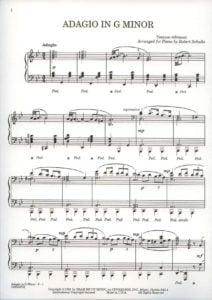 | |
| ALBINONI-Adagio |
 | |
| Album of Russian piano music | Russian music 1 | Russian music 2 |
| Album Of Scandinavian Piano Music By Louis Oesterle Vol. 1 (25 Pieces) 1902 |
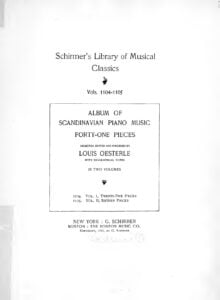 | Album Of Scandinavian Piano Music By Louis Oesterle Vol. 1 (25 Pieces) 1902 |
| Alegre Magín – Americana (Guitarra) Habanera (Musescore File).mscz | ||
| Alegria Cirque Du Soleil Piano Vocal Guitar Chords Sheet Music |
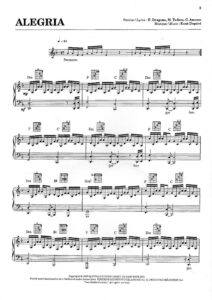 | |
| Alejandro Sanz – Amiga Mia | ||
| Alejandro Sanz – La Margarita Dijo No | ||
| Alejandro Sanz – Y Si Fuera Ella | ||
| Aleksander Vertinskiy songbook |
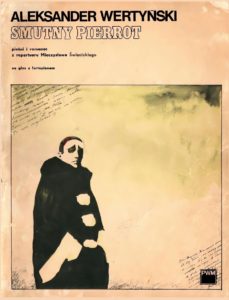 | Aleksander Vertinskiy songbook |
| Alex North – Spartacus Love Theme (piano sheet music) |
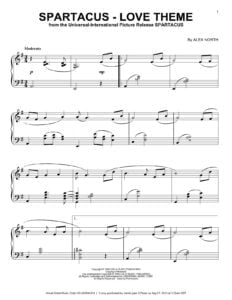 | Alex North Spartacus Love Theme |
| Alex North Spartacus Love Theme (Lead sheet) | Alex Norrth SpArtacus | |
| Alexander Scriabin 24 Preludes Op. 11 1 To 12 Musescore File.mscz | ||
| Alexandra Harwood All Creatures Great And Small (Main Title 2020 TV Series) Both Easy And Intermediate Piano Solo |
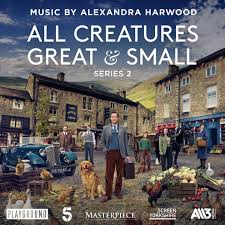 | |
| Alexandra Streliski Burnout Fugue |
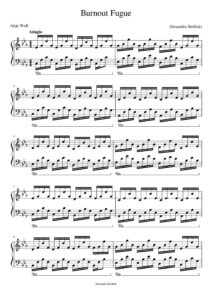 | |
| Alexandra Streliski Inscape Portrait (Piano Solo) |
 | Alexandra Streliski Inscape Portrait (Piano Solo) |
| Alexandra Streliski Le Noveau Dèpart |
 | |
| Alexandra Streliski Par La Fenêtre De Théo |
 | |
| Alexandra Streliski Plus Tôt |
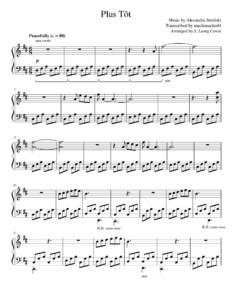 | |
| Alexandra Strevisky Pianoscope |
 | Alexandra Strevisky Pianoscope |
| Alexandre Desplat Elisas Theme Piano from The shape of water |
 | |
| Alexandre Desplat The Shape Of Water Main Theme |
 | |
| Alexandre Desplat – Lust Caution |
 | Alexandre Desplat – Lust Caution |
| Alexandre Desplat – The Imitation Game |
 | |
| Alexandre Desplat – The Meadow New Moon Piano solo Sheet Music |
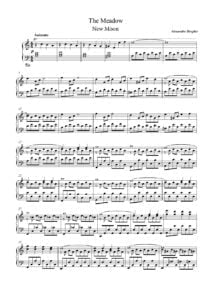 | |
| Alexandre Desplat Almost A Kiss (From The Film New Moon) |
 | |
| Alexandre Desplat and Lang Lang Kitty,s Theme from The Painted Veil | Alexandre Desplat and Lang Lang Kitty,s Theme from The Painted Veil | |
| Alexandre Desplat Brunos Theme From Suite Fran?aise |
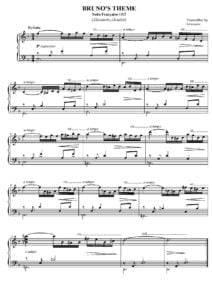 | |
| Alexandre Desplat Full Moon (From The Film New Moon) |
 | |
| Alexandre Desplat Little Women Music From The Motion Picture Piano Solo |
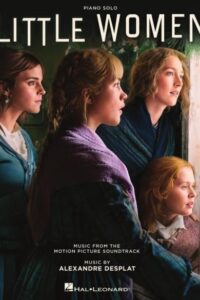 | Alexandre Desplat Little Women Music From The Motion Picture Piano Solo |
| Alexandre Desplat Love returns (The curious case of Benjamin Button OST) | ||
| Alexandre Desplat My Week With Marilyn – Marilyn’s Theme |
 | |
| Alexandre Desplat Nothing lasts (The curious case of Benjamin Button OST) | ||
| Alexandre Desplat Ost Godzilla Main Theme |
 | |
| Alexandre Desplat The Danish Girl Theme Piano Solo |
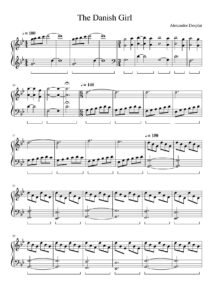 | |
| Alexandre Desplat The Engagement (Birth) Sheet Music |
 | |
| Alexandre Desplat The Imitation Game |
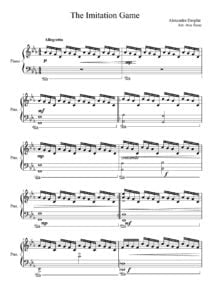 | |
| Alexandre Desplat The King Speech |
 | Alexandre Desplat The King Speech |
| Alexandre Desplat The Power Plant from Godzilla |
 | |
| Alexandre Desplat The Queen People’s Princess | Alexandre Desplat The Queen People’s Princess | |
| Alexandre Desplat The Shape Of Water Music From The Motion Picture Soundtrack Piano Solo |
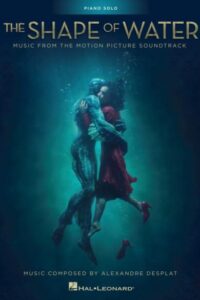 | Alexandre Desplat The Shape Of Water Music From The Motion Picture Soundtrack Piano Solo |
| Alexandre Desplat The Wonder Of Life |
 | |
| Alexandre Desplat Wong Chia Chi Theme (Lust Caution) Sheet Music |
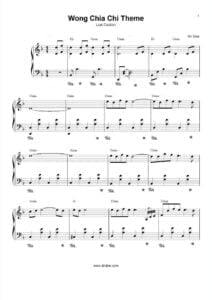 | |
| Alexandrov Piano Works Vol I |
 | |
| Alexandrov Works for Piano Vol II |
 | |
| Alexandrov Works for Piano Vol III Sonatas |
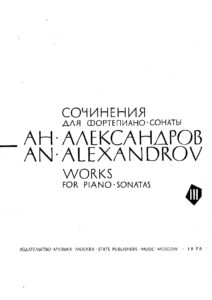 | |
| Alexandrov, Anatoly 6 Preludes For Piano Op. 1 (1961) |
 | |
| Alexis Ffrench – Bluebird |
 | |
| Alfred Basic Adult Christmas Book Level 1 |
 | |
| Alfred Basic Repertoire Level 4 |
 | |
| Alfred Brendel A Pianists A-Z A Piano Lovers Reader Book |
 Andrew Hill 21 Piano Compositions Andrew Hill 21 Piano Compositions | |
| Alfred’s Basic Adult Piano Course Level 1 |
 | Lessons Alfred’s Basic Adult Piano Course Level 1 |
| Alfred’s Basic Adult Piano Course Level 2 |
 | Lessons Alfred’s Basic Adult Piano Course Level 2 |
| Alfred’s Basic Adult Piano Course Level 3 |
 | Lessons Alfred’s Basic Adult Piano Course Level 3 |
| Alfred’s Basic Piano Level 4 Jazz Rock Course |
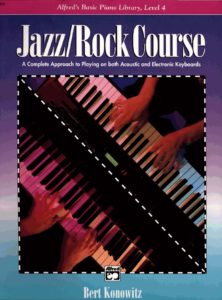 | |
| Alfred’s Basic Piano Library Essentials Of Jazz Theory Book 2 |
 | Alfred’s Basic Piano Library Essentials Of Jazz Theory Book 2 |
| Alfred’s Basic Piano Library – Solo Book Complete Levels 2 & 3 for the later beginner |
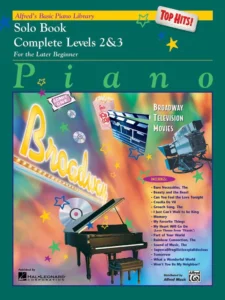 | Alfred’s Basic Piano Library – Solo Book Complete Levels 2 & 3 for the later beginner |
| Alfred’s Basic Piano Library – Top Hits! Solo Book – Level 4 |
 | |
| Alfred’s Basic Piano Library Essentials Of Jazz Theory Book 1 |
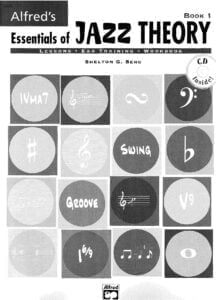 | Alfred’s Basic Piano Library Essentials Of Jazz Theory Book 1 |
| Alfred’s Basic Piano Library Essentials Of Jazz Theory Book 3 |
 | Alfred’s Basic Piano Library Essentials Of Jazz Theory Book 3 |
| Alfred’s Basic Piano Library Lesson Book Level 2B |
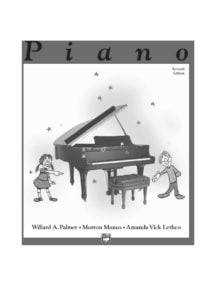 | |
| Alfred’s Basic Piano Library Lesson Book Level 3 |
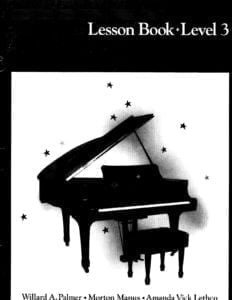 | |
| Alfred’s Basic Piano Library Lesson Books 1 to 6 (Complete) |
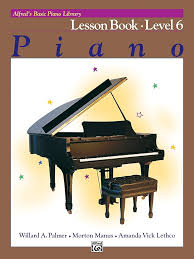 | |
| Alfred’s Teach Yourself To Play Guitar Everything You Need To Know To Start Playing The Guitar! (with Tablature) |
 | |
| Alfred’s Essentials Of Music Theory, Complete (Andrew Surmani, Karen Farnum Surmani Etc.) Sheet Music |
 | |
| Ali and Nino (Dario Marianelli) | ||
| Alice Coltrane Monument Eternal (book) The Music of – by Franya J. Berkman |
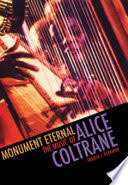 | |
| Alice In Chains Dirt Full album Guitar TAB with lyrics |
 | Alice In Chains Dirt Full album Guitar TAB with lyrics |
| Alicia Keys – A Woman’s Worth | Alicia Keys – A Woman’s Worth | |
| Alicia Keys – A Womans Worth | ||
| Alicia Keys – And I | ||
| Alicia Keys – As I Am (Songbook) |
 | ALICIA KEYS SONGBOOK |
| Alicia Keys – Butterflyz | ||
| Alicia Keys – Diary | ||
| Alicia Keys – Fallin | ||
| Alicia Keys – Fallin’ (Sheet Music – Piano) | Alicia Keys – Fallin’ (Sheet Music – Piano) | |
| Alicia Keys – Goodbye | ||
| Alicia Keys – How Come You Dont Call Me | ||
| Alicia Keys – If I Aint Got You |
 | |
| Alicia Keys – Impossible | ||
| Alicia Keys – Never Felt This Way | ||
| Alicia Keys Note For Note Keyboard Transcriptions Piano Songbook |
 | Alicia Keys Note For Note Keyboard Transcriptions Piano Songbook |
| Alicia Keys Songs In A Minor Piano Vocal Guitar |
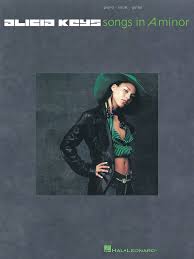 | Alicia Keys Songs In A Minor Piano Vocal Guitar |
| Alicia Keys The Diary Of Alicia Keys Songbook piano vocal guitar |
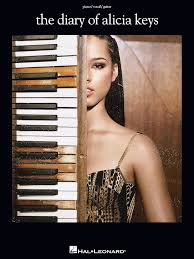 | The Diary Of Alicia Keys Songbook piano vocal guitar |
| Alicia Keys The Element Of Freedom Songbook |
 | ALICIA KEYS |
| Alicia Keys Unplugged |
 | ALICIA KEYS UNPLUGGED |
| Alkan, Charles Valentin Concerto For Solo Piano 1st Movement Opus 39 No. 8 In G Minor (Piano Solo Reduction) |
 | |
| All 4 One – I Can Love You Like That | ||
| All 4 One – I Swear | ||
| All American Folk Complete Sheet Music Editions Volume One (Creative Concepts Publishing Corp.) |
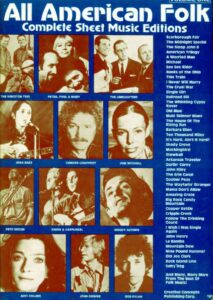 | All American Folk Complete Sheet Music Editions Volume One (Creative Concepts Publishing Corp.) ( |
| All Blues Soloing For Jazz Guitar – Jim Gerguson Play Along (Book + audio MP3) with Tablature |
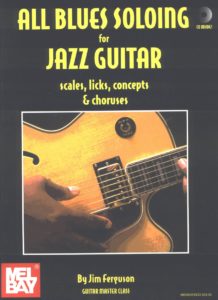 | All Blues Soloing jazz guitar |
| All By Myself – Celine Dion (Musescore File).mscz | ||
| All I Want For Christmas Is You (Musescore File).mscz | ||
| All Of Me – Jazz Standard Stride Piano arr. Gerald Marks and Seymour Simons | All of me (Gerald Marks and Seymour Simons) Jazz Piano Solo arr. sheet music | |
| All Of Me – Jazz Standard Stride Piano Arr. Gerald Marks And Seymour Simons (Musescore File).mscz | ||
| All Of Me Fingerstyle Guitar TABs By Lucas Brar Jazz Standard (Gerald Marks and Seymour Simons) | All Of Me Fingerstyle Guitar TABs By Lucas Brar Jazz Standard | |
| All Of Me Gerald Marks & Seymour Simons 1931 Jazz Standard (Vintage sheet music) | All Of Me Gerald Marks & Seymour Simons 1931 Jazz Standard (Vintage sheet music) | |
| All Of The Jazz Standard Vol. 1 |
 | All Of The Jazz Standard Vol. 1 |
| All Of The Jazz Standard Vol. 2 |
 | All Of The Jazz Standard Vol. 2 |
| All Saints – Never Ever | ||
| All That Jazz piano-vocal Arrangement |
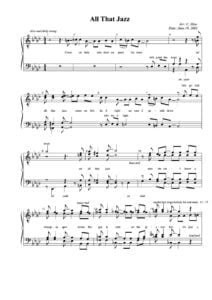 | |
| All The Best Christmas for Piano Solo 20 arrangements for solo piano |
 | All The Best Christmas for Piano Contents |
| All The Things You Are Lead Sheet (Musescore file).mscz | Musescore File | |
| All The Things You Are Lead Sheet With Chords And Chords Symbols | All The Things You Are Lead Sheet With Chords And Chords Symbols | |
| All The Things You Are (Guitar And Tabs) | All The Things You Are (Guitar And Tabs) | |
| All The Things You Are (Guitar And Tabs) (Musescore File).mscz | ||
| All The Things You Are 12 Versions (Jazz Standard) Performed By 12 Different Artists | All The Things You Are 12 Versions (Jazz Standard) Performed By 12 Different Artists | |
| All The Things You Are By Jerome Kern Guitar Transcription | All The Things You Are By Jerome Kern Guitar Transcription 1st page | |
| All The Things You Are Jerome Kern Oscar Hammerstein 2nd 1940 Jazz Standard (Vintage sheet music) |
 | |
| All Time Standards (Songbook) Jazz Guitar Tablature Chord Melody Solos (Jeff Arnold) |
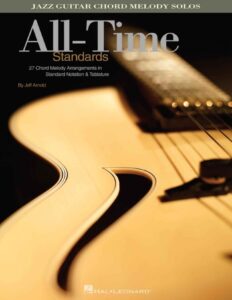 | All Time Standards (Songbook) Jazz Guitar Tablature Chord Melody Solos (Jeff Arnold) |
| All Time Standards Piano (Arr. Gabriel Bock) |
 | All Time Standards Piano (Arr. Gabriel Bock) |
| All You Need Is Ears George Martin with Jeremy Hornsby 1979 (Book) The story o the recording genius who created The Beatles |
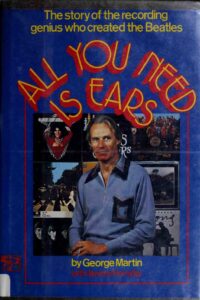 | |
| Allan Holdsworth Just for the curious book Guitar with Tablature |
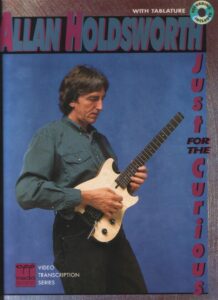 | |
| Allan Holdsworth Melody Chords For Guitar |
 | |
| Allan Holdsworth Super Guitarist with TABs |
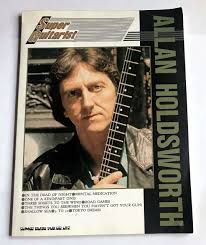 | Allan Holdsworth Super Guitarist with TABs |
| Alle prese con una verde Milonga (Paolo Conte) | ||
| Allevi, Giovanni – Back To Life |
 | |
| Allie Wrubel – Gone with the Wind |
 | |
| Allman Brothers Guitar Songbook |
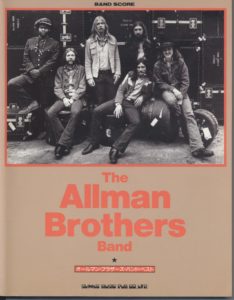 | Allman Brothers Guitar Songbook |
| Allman Brothers, Best Of The (Piano, Vocal, Guitar) |
 | Allman Brothers, Best Of The (Piano, Vocal, Guitar) |
